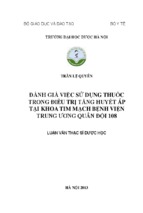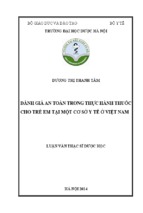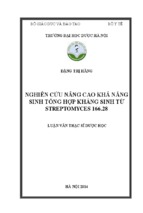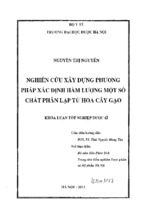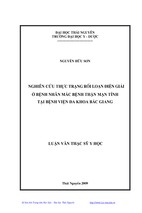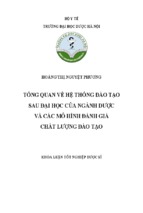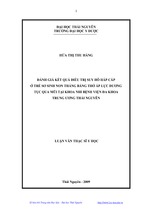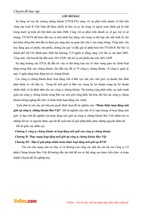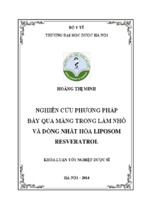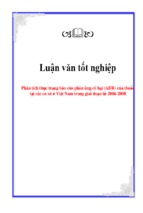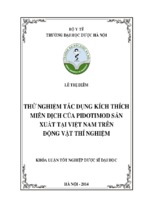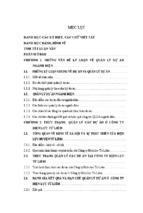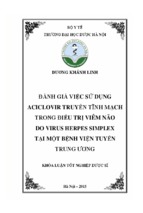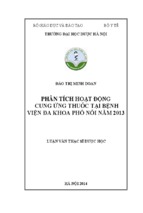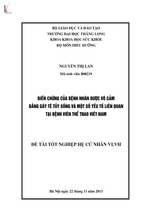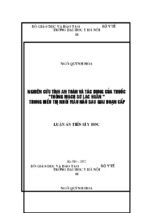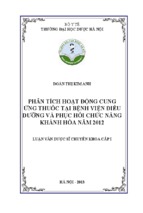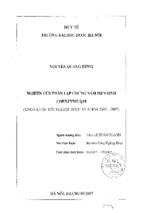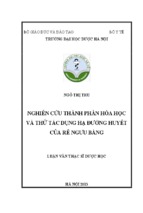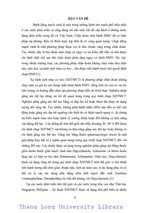ACCOUNTING ETHICS AND ITS IMPOTANT ROLE FOR
REDUCTION OF ACCOUNTING FRAUD
AN EMPIRICAL IN HANOI
By
NGUYEN DUC THUAN
Student ID: E0700273
Graduation Project Submitted to the Department of Business Studies, HELP
University College, in Partial Fulfillment of the Requirements for the Degree of
Bachelor of Business (Accounting) Hons
October 2011
Declaration of Originality and Word Count
DECLARATION
I declare that this graduation project is based on my original work except for
quotations and citation which have been duly acknowledged. I also declare that it has
not been previously or concurrently submitted for any other courses/degrees at HELP
University College or other institutions.
Word Count: 10006
NGUYEN DUC THUAN
17 OCTOBER 2011
2
ACKNOWLEDGEMENT
In order to finish the project, I take a lot of assistance, support and guidance of many
people. So I wish to give to thank to all of the people who have helped me during the
process of the research.
Firstly, I would like to express my deep gratitude to my supervisor Dr Nguyen Hong
Quan, who is auditor from the State Audit Office of Viet Nam. He has kindly helped
me and supported me all the way
Secondly, I also would like to express my thank to Ms. Sumathi and Ms. Shenba,
Help University College, who initiated the project and give so much instruction and
support.
Thirdly, I give to thank to interviewers who accepted joining my interview
Finally, I want to thank to all the respondents who have helped me complete the
survey with their enthusiastic.
3
TABLE OF CONTENT
DECLARATION ....................................................................................................... 2
ACKNOWLEDGEMENT ......................................................................................... 3
TABLE OF CONTENT ............................................................................................. 4
LIST OF TABLE ....................................................................................................... 6
LIST OF ABBREVIATIONS .................................................................................... 8
ABSTRACT ............................................................................................................... 9
CHAPTER I : INTRODUCTION ........................................................................ 10
1.1.Research Background..................................................................................... 10
1.2 Accounting fraud in Vietnam ......................................................................... 11
1.3. Problem statement ......................................................................................... 12
1.4 Objectives and sphere of research .................................................................. 14
1.4.1 Objectives of Research ............................................................................ 14
1.4.2 Sphere of research.................................................................................. 14
1.5 Research Methods .......................................................................................... 15
CHAPTER 2: LITERATURE REVIEW ............................................................. 16
2.1 Business Ethics: an overall view .................................................................... 16
2.2 Accounting ethics ........................................................................................... 17
2.3 Conflict of interests ........................................................................................ 17
2.4 Accounting Fraud ........................................................................................... 20
2.4.1 Issue ........................................................................................................ 20
2.4.2 Driven by profit management ................................................................. 22
2.4.3 Corporate governance ............................................................................ 22
2.5 Code of Ethic for Accounting Professionals .................................................. 22
4
CHAPTER 3: RESEARCH METHOLOGY ...................................................... 25
3.1 Research Objectives ....................................................................................... 25
3.2 Research Method ............................................................................................ 25
3.3 Data source ..................................................................................................... 27
3.4.1 Primary data ........................................................................................... 27
3.4.2 Secondary data ........................................................................................ 27
3.5 Research tool .................................................................................................. 28
3.5.1 Questionnaire .......................................................................................... 28
3.5.2 Personal interview .................................................................................. 29
3.6 Sampling ........................................................................................................ 30
CHAPTER 4: ANALYSIS AND FINDING ......................................................... 31
4.1 Collection of Questionnaires .......................................................................... 31
4.2 Description of Result...................................................................................... 31
4.3.1 Age........................................................................................................... 32
4.3.2 Gender ..................................................................................................... 33
4.3.3 Question for accountants ........................................................................ 35
4.3.4 Question for auditors: ............................................................................. 41
4.4 Interview analysis........................................................................................... 46
CHAPTER 5: CONCLUSION AND RECOMMENDATION .......................... 48
5.1 Conclusion ..................................................................................................... 48
5.2 Recommendation............................................................................................ 50
5.3 Limitations ..................................................................................................... 51
REFERENCE ......................................................................................................... 52
APPENDIX 1 ........................................................................................................... 55
APPENDIX 2 ........................................................................................................... 57
5
LIST OF TABLE
Figure 1: activities and situations on holding potential for conflicts of interest for
public official ........................................................................................................... 19
Figure 4: external activities and situations on holding potential for conflicts of
interest. ...................................................................................................................... 20
Table 1: Age of accountants...................................................................................... 32
Table 2: Age of auditors ........................................................................................... 33
Table 3: Gender of accountants ................................................................................ 33
Table 4: Gender of auditors ...................................................................................... 34
Table 5: Answers for question 1 of first system question ........................................ 35
Table 6: Answers for question 1 of first system question ........................................ 35
Table 7: Answers for question 2 of first system question ........................................ 36
Table 8: Answers for question 2 of first system question ........................................ 36
Table 9: Answers for question 3 of first system question ........................................ 37
Table 10: Answers for question 3 of first system question ...................................... 37
Table 11: Answers for question 4 of first system question ....................................... 38
Table 12: Answers for question 4 of first system question ....................................... 38
Table 13: Answers for question 5 of first system question ...................................... 39
Table 14: Answers for question 5 of first system question ...................................... 39
Table 15: Answers for question 6 of first system question ...................................... 40
Table 16: Answers for question 6 of first system question
................................... 41
Table 17: Answers for question 1 of second system question ................................. 41
Table 18: Answers for question 1 of second system question ................................. 42
Table 19: Answers for question 2 of second system question ................................. 42
6
Table 20: Answers for question 2 of second system question ................................. 43
Table 21: Answers for question 3 of second system question ................................. 43
Table 22: Answers for question 3 of second system question ................................. 44
Table 23: Answers for question 4 of second system question ................................. 44
Table 24: Answers for question 4 of second system question ................................. 45
Table 25: Answers for question 5 of second system question ................................. 45
Table 26: Answers for question 5 of second system question ................................. 46
7
LIST OF ABBREVIATIONS
WTO: The World Trade Organization
IFAC: International Federation of Accountants
AGA: Advancing Government Accountability
GAAP: General Accounting Accepted Principal
ACCA: Association of Chartered Certified Accountants
IESBA: International Ethics Standards Board for Accountants
8
ACCOUNTING ETHICS AND ITS IMPOTANT ROLE FOR
REDUCTION OF ACCOUNTING FRAUD
AN EMPIRICAL IN HANOI
By
NGUYEN DUC THUAN
October 2011
Supervisor: Dr Nguyen Hong Quan
ABSTRACT
Viet Nam is in the process of integrating in the international economic. Especially,
Viet Nam becomes members of The World Trade Organization (WTO). Thus, there
are many opportunities as well as threats for companies. Along with new economic,
Vietnam's accounting system has been profoundly modified to approach and
integrated the principles, practices and common standards of the world. In recent
year, many accounting frauds have occurred; they have great affect on the economic.
Thus, the objective of the research is to analyze the importance of accountants and
auditors in accounting fraud, and to find the solution to reduce accounting fraud.
9
CHAPTER I : INTRODUCTION
1.1 Research Background
In dynamic global society, building business ethics with own features will contribute
to the economic integration under the phase of the life and global politics. In business
environment, ethics has now increasingly become an important factor, which has
great effect on not only consumers‟ decision but also company‟s success.
Ethics in business is not just a slogan to please consumers. It is also the tools to
maximize profits and to strengthen the brand. Because the reputation of firms
originally come from the ethical behavior bring higher customers‟ recognition,
ethical business behavior should to be paid greater attention in the future. In
particular link to the accounting, ethical practices can make benefit for all market
participants and stakeholders that lead to rise investor confidence in global capital
markets. Accounting ethic will instill a public trust in the fairness of markets,
allowing it to function efficiently. In fact, the accountants also faced with many
issues which relates to competition, outstanding figures, good financial statement,
commissions and etc. The pressure of the accountants is time restriction and costs
controlling. Each customer has different requirement and purpose on the financial
condition. When the market has increasingly competed to day, companies always
want to pay only lower tax rates. As a result, accountants can create the dilemmas of
ethical issues when firms have encountered financial problems. In addition, the life
of an accountant is filled up with accounting rules and the numbers should be
calculated correctly. Consequently, the accountant must comply with the rules of
ethics which guide their responsibilities to customers and toward the interests of the
community. However, there are many scandals relate to accounting in recent years.
10
Many accountants give incorrect numbers that make loss the belief of investors,
shareholders and customers, especially is ENRON, VINASHIN. It is clear that the
role of ethic accounting is really important. Thus, accountants and auditors also keep
in their mind all of regulations that include the concept of the virtues as integrity,
objectivity, independence and do carefully. These regulations are indicated in the
scope of accounting ethics, they wants accounting of the services should be provided
in an ethical manner. The different types of accounting such as auditing, tax and
management express under the different kinds of ethical issues. For example,
accounting relates to sales, commissions are also addressed indirectly. Unexpected
fees often relates to producing cost. Thus this regulation was to give them the moral
standards of the accounting, staff should have a clear understanding and distinguish
under the term of ethical behavior and unethical to avoid the accounting fraud.
As the result, the society is more and more developing; ethic is cared more and more.
In this study, I will analyze the importance of accounting ethics and prove its role in
reducing accounting fraud.
1.2 Accounting fraud in Vietnam
Vietnam became a member of the World Trade Organization, (WTO) in 2006. When
the Vietnamese enterprises get into global platform, enterprises can gain many
opportunities. Beside, they have also to face with more and more difficulties and
challenges such as more competitive, small market share. ... All of these require the
companies need to have the higher efforts in business.
Beside, beginning an open market that is why almost of industries is more
developed. Thus the quality of accountants is needed to improve. When the society is
highly developing, the problems relates to ethics also rising. In Vietnam, the lack of
qualified and ethical accountants is alarmingly situation. That is why many scandals
11
relates to accounting fraud occurred in recent year. In inspections of accounting
firms recently, many accountants have not read the audit report, do not know the
financial report but still getting the customer's contract although they are not expert.
This is one feature of the lack of accounting ethics. Reflection of ethics of a
professional accountant should be expressed in honesty, integrity, privacy and sense
of law observance. However, Vietnam is changing to suit to common international
standards In order to integrating into the global economy. Vietnam is applying the
guidelines of International Federation of Accountants (IFAC) for control accounting
services.
1.3. Problem statement
Most people can not grasp and understand fully the text, the principles relating to
finance and tax. That is why the enterprises must have accounting staffs in
companies or companies must hire professional accounting services from outside.
The professional accountant will help businesses make the financial statements most
effectively and obey with law. That is the reason a professional accountant should
take responsibility for what he does. Employees in Advancing Government
Accountability (AGA) always operate under the motto: "to provide professional
accounting services to businesses using the modern business accounting,
performance possible results”. Based on the nature of accounting, information
security is considered the standard of conduct of accountants. Accountants were not
allowed to disclose or use information outside of business because the accounting
information is very important information. For instance, if disclosing to competitors
would lead to losses for company even bankruptcy. In fact, the collapse of major
financial companies in Viet Nam and in the world comes often from the sale of the
accounting information for the benefit individual members. So accounting ethic
12
consist that the objectivity and integrity in this major run on the right track. An
accountant does not work objectively, that could put themselves in conflicts of
interests of stakeholders. Moreover, an accountant is also responsible to resolve the
conflict by the parties. Work of accountants based on the numbers, the numbers can
transmit information. But if the accountant deliberately distorting the numbers, will
lead to the transmission of misleading information and cause adverse consequences
for the use of information. Unethical accounting will make great harm on the global
economy. Thus, ethic in accounting is really essential,
In recent years, more and more multi-national company offer professional ethics to
guide the behavior of the accountants and ensure that their activities can meet
international standards. In Viet Nam, the accountants must also observe the general
regulations of the state. With the goal of meeting the requirements of integration
since 1996, Vietnam has been studying the entire system of international accounting
standards (IAS). However, Vietnam accounting systems provides very detailed
definitions, methods, presentation and the information required to present in the
financial statements. Vietnam accounting systems only take care of information of
the financial statements for investors, not focus on internal management information.
There is significant difference with accounting standards issued by the International
Accounting Standards Board (IASB). That was prepared and published under the
very strict procedures to ensure quality standards and has high practice.
According to Nguyen Phuong Mai, who is a chief of the representative office of the
UK-based Association of Chartered Certified Accountants (ACCA) in Vietnam, say
that” in order to reduce the accounting fraud, we need to apply the rule of General
Accounting Accepted Principal (GAAP). (http://www.legalmatch.com)”. According
to these rules, we can prevent the accounting fraud effectively. It can not only avoid
13
the harmful effects of the lack of ethics in accounting, but also contributes to
improvement of the quality of the business. Companies have accountant who take
care of accounting ethics, customers and public opinion recognized as moral
company. It shows in the business decisions including efficient operations
increasing, the financial statements clear and transparent, they help to make the right
decisions, make the quality products leading to improved customer loyalty.
1.4 Objectives and sphere of research
1.4.1 Objectives of Research
The purposes of this study are
To define the accounting ethics that can apply in Viet Nam
To give the accounting fraud in Viet Nam
To reflect on importance of ethics in accounting
To recommend solutions for reduction of accounting fraud
1.4.2
Sphere of research
Place of conducting research: Hanoi National University, Hanoi capital,
Vietnam
Object of research: accountants and auditor who are major accounting at any
company in Hanoi
Companies in research: public companies and private companies in Hanoi
Time period of conducting research: from 18 July 2011 to 18 October 2011
14
1.5 Research Methods
In order to achieve the high expectation of the research, the method of study is quite
important. There are many methods, in this research I choose the qualitative, primary
data and secondary data which will be used most during the project. Qualitative
method explores attitudes, behavior and experiences through such methods as
interviews or focus groups. The research bases on information that is collected by
accountants, auditors in the companies, students through questionnaires. The
questions will be covered in 3 categories:
+ Impact of ethic on accounting
+ The issues of fraud in accounting
+ The method to reduction in accounting fraud
Besides, secondary data is the existing data collected for other purposes and they can
be employed to support research (http://www.steppingstones).The secondary data
derive from various resources. They can be from journals, books and e-magazine
15
CHAPTER 2: LITERATURE REVIEW
2.1 Business Ethics: an overall view
From the past to recent, many researchers give the different definitions of ethic.
Ethics is a commonly used terminology in the modern world but its definition is
varied according to the scope, influencing areas, and the professions. It is hard to get
an exact definition of ethic. Philip Wheel Wright said: “Ethics is the branch of
philosophy which is the systematic study of selective choice, of the standards of right
and wrong and by which it may ultimately be directed” (cited in Paliwal, 2007).
According to Paliwal (2007), ethics is “the science of conduct” and related to certain
human conduct and morals standards. Ethics is a mass of moral principle or set of
values that categorize, systemize, defend and suggest what the right, wrong and
unfair behaviors are. The right action is called ethical and the wrong one is called
unethical. This is quite general; it is difficult to confirm whether that behavior is right
or wrong. Thus, the important goal of ethic is to ensure that organization and its
staffs develop, promote and follow the highest ethical standard. The best ethical
standard describes the norm of honesty, integrity, morality and management
practices.
Ethics is now subdivided in smaller classes. In respect of the business, the term
business ethics is emerged. Ferrell et al (2010) stated that “business ethics comprises
the principles, values, and standards that guide behavior in the world of business”.
According to this definition, ethic is understood as the benchmark boundaries that
guide behaviors with the aim to prevent unethical actions. The principles also mean
the basic rules such as the freedom of speech, justice fundamentals and equal rights.
Values are trust, accountability and integrity.
16
2.2 Accounting ethics
Accounting is one of the major factors that contribute in to the success of business‟
operations. The work of accountants and auditor requires a high level of ethic.
Through financial statement, stakeholders assess the firm operations, sustainability
and growth. The more accurate and unbiased the information and financial
statements are, the more successful stakeholders make decisions. We can see that the
importance of accounting is quite clear. Therefore, the accounting ethics has been
given out and argued worldwide. Accounting ethics in the field of accounting refers
to the guidelines (consisting of judgments and moral values) that a professional
needs to follow while practicing accounting. The accounting ethics was first brought
out by Luca Pacioli on his first book “Summa de arithmetica, geometria, proportioni,
et proportionalita”, published in 1494. In recent years, there are a number of studies
which has introduced theologically oriented ethics in the general accounting
literature. However, ethical standards are developed by government groups,
professional organizations and independent companies. The ethics of accounting is
now only argued at the broad and general layer but not on the narrow. It focuses on
how individual accountants should behave. Since 1980s, the accounting ethics has
been becomes the subject that was taught in college and universities.
2.3 Conflict of interests
Conflict of interest is becoming the major matter of global public concern. Conflicts
of interest often arise in the investment management profession. In business manner,
it is “a major cause behind recent corporate governance shortcomings” (Bertok,
2003) as well as it is able to cause the serious damages to the integrity of
organizations. Moreover, the financial and pecuniary interests are viewed as the
principal causes of conflict of interest. In general, conflicts of interest can be defined
17
as any situation in which an individual or company (private or government) in a
position to abuse their positions for personal benefit or their company. Depending on
the laws or regulations relating to a specific organization, the existence of a conflict
of interest may not be evidence of wrong doing or fraud. In fact, some cases are
sometimes difficult to avoid conflicts of interest. A conflict of interest could become
a legal matter such as when an individual intentionally (successful or not) in
affecting the outcome of a decision, for personal gain. Someone accused of a conflict
of interest may deny that a conflict did not happen because he does not do harmful
actions. In fact, conflicts of interest may exist even if there is no harm behavior.
In an organization, there are many stakeholders that are affected from ongoing
operations. These stakeholders are divided into two groups: market stakeholders and
non-market stakeholders (Lawrence and Weber, 2008). The manager tends to treat
preferentially to the market stakeholders (shareholders, creditors, customers,
distributors, employees, suppliers, wholesalers and retailers) and try to ignore the
benefits of non market group (community, governments, activist groups, media,
business support groups and general public). Therefore, conflict of interests among
stakeholders is raised.
The important illustrations of conflict of interest are agency problem and insider
trading. In a big organization, the owners do not involve in managing the daily
operation activities, management is responsibility of managers. To the owners, on
one hand, the key reason of ongoing business activities is to maximize the
shareholder wealth. On the other hand, to the managers, they are most be attracted
by their personal benefits like salary, commissions and bonuses. In order to achieve
their own objectives, managers can run the business and give financial statement in a
manner that will not maximize the shareholders wealth. The managers argue that
18
they do the right thing because they make belief for shareholders, thus there is no
conflict of interest. This is not true because managers ignore the most important
objective is to maximize overall wealth rather than the ability to maximize profit.
Under an investigation of Organization for Economic Co-operation and Development
(OECD), the following results are carried out in Figure 3 and 4:
Besides, conflict of interest may be existed in number of forms. Self-dealing is the
action of an employee who use his power to enter a transaction with another entity or
individual that benefit him but not based on the organization‟s interest. Or there is an
existence of an outside employment that its interest contradicts to the primary job
activities. Sometimes, the official can make decisions based on their family benefits
called nepotism. Receiving gifts from friends or accepting bribes is one type of
serious fraud.
19
Thus, managing these conflicts is a critical part of working in the limitation of fraud.
There are many ethicial standard designed to prevent any potential conflict of interest
or the appearance of a conflicts of interest with respect to personal transaction. The
best way is to avoid conflicts of interest when it is possible. When conflicts can not
be reasonable avoided, there is need to disclosure of their existence.
2.4 Accounting Fraud
2.4.1
Issue
Due to the conflict of interest in management, many directors and chief accountants
have collaborated to create the misleading and totally wrong information and
financial statements. For instance, Anderson Arthur-one of big independent auditors
had been revealed the unethical activities in Enron collapse.
In recent years in Vietnam, a series of economic and commercial fraud on the
financial reports is brought to the light suggesting that fraud occurs in all types of
businesses and in all areas. On November 25th 2008, in Hanoi, the State Audit held a
20
- Xem thêm -

